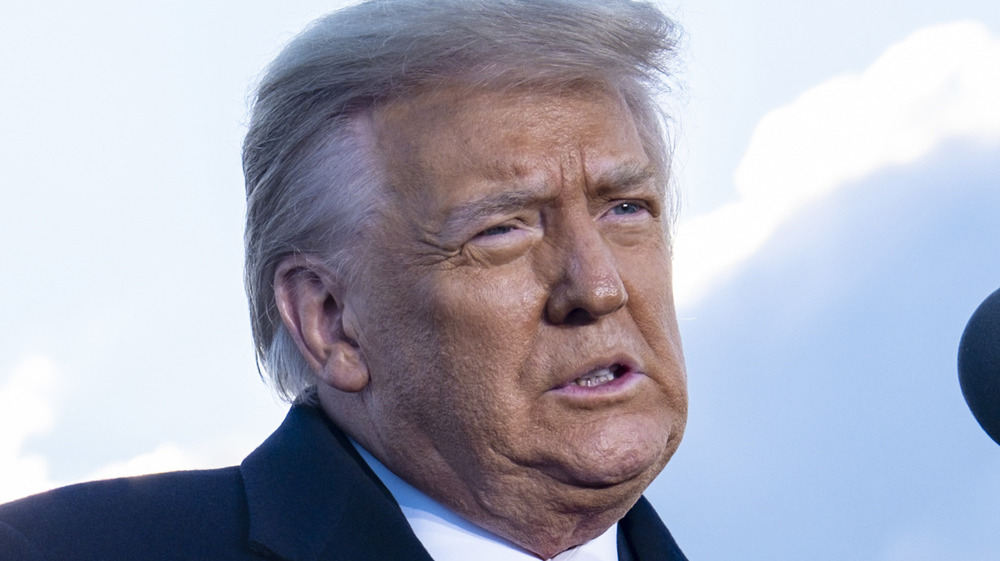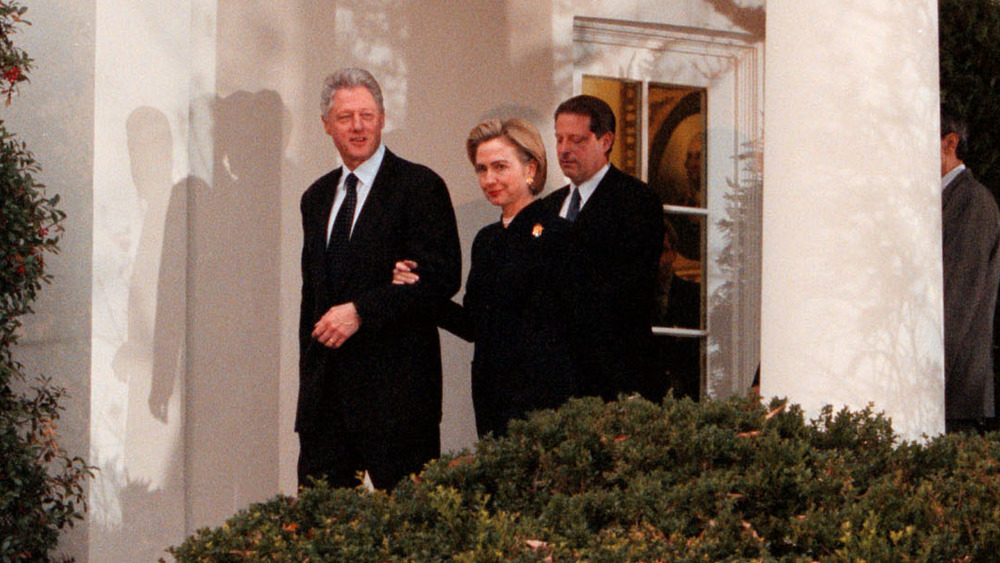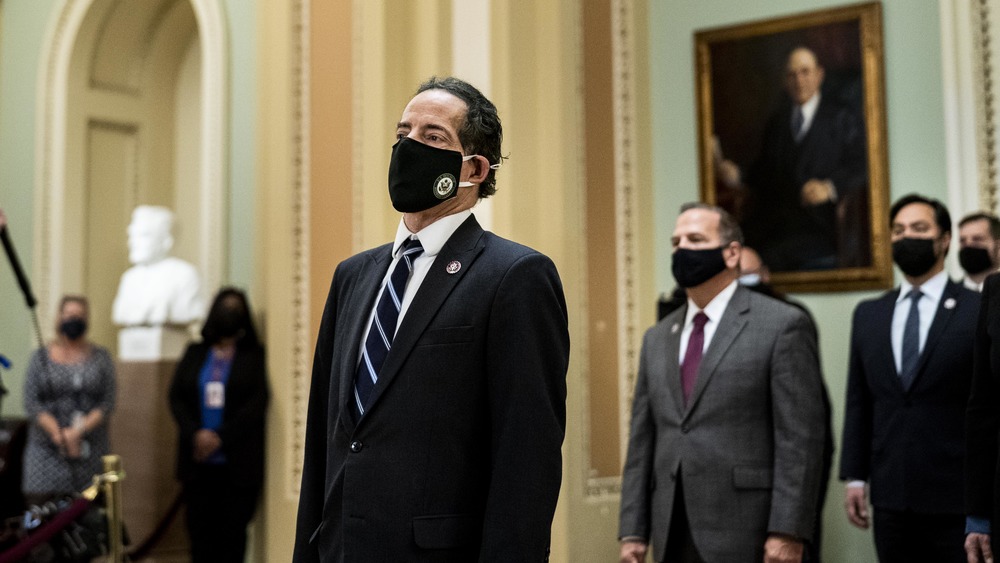Here's Why You Probably Won't See Trump At The Impeachment Trial
We are just days away from the start of Donald Trump's second impeachment trial. In case anyone believes there is a chance Trump will appear in Congress to answer to the charges against him and submit to questioning, a second thought is in order. Trump is refusing to appear in Congress to testify; his "thanks, but no thanks" was communicated through one of his advisers, Jason Miller, who said that the former president would not testify in what Miller referred to as called an "unconstitutional proceeding" (via The Washington Post).
Trump's refusal to attend was later reiterated by a letter to impeachment manager Jamie Raskin from Trump's lawyers David Schoen and Bruce Castor Jr., who called the impeachment trial a public relations stunt and an unconstitutional proceeding. They continued: "You cannot prove your allegations against the 45th President of the United States, who is now a private citizen. The use of our Constitution to bring a purported impeachment proceeding is much too serious to try to play these games" (via PBS).
Sitting presidents have appeared at impeachment trials in the past
The summons for Donald Trump to appear before Congress isn't without precedent. As Democratic congressman Jamie Raskin, who signed the letter inviting Donald Trump to appear before the impeachment hearings pointed out, both Presidents Gerald Ford and Bill Clinton testified in person during past impeachment trials. Raskin also noted that the Supreme Court had said that Trump was "not immune from legal process while serving as President — so there is no doubt you can testify in these proceedings" (via The New York Times).
Raskin and other impeachment managers are hoping that Trump will provide testimony under oath that would speak to his conduct on Jan. 6 — the day the Capitol riot broke out. They want Trump to appear at the impeachment trial between Monday, Feb. 8, and Thursday, Feb. 11.
Rep. Raskin said that Trump's decision to decline would mean that the trial managers would "reserve any and all rights, including the right to establish at trial that your refusal to testify supports a strong adverse inference regarding your actions (and inaction) on January 6, 2021." But Trump's refusal to attend still doesn't mean he won't show up in the end, as lawmakers can still exercise the option to force Trump to testify by using a subpoena (via PBS).
Few expect to see Trump impeached
One of the arguments which Donald Trump's lawyers are using to keep the former president from being impeached is that the trial itself is unconstitutional. One expert, constitutional lawyer Boston College's Kent Greenfield, tells USA Today that the Constitution is rather vague where the matter of charging a former president is concerned. But there is an important caveat. "This [situation] is a total anomaly. It's a totally unique situation in our history, thankfully. I think this president proved himself to be historically aberrational, so having a historically aberrational remedy here seems the course" Greenfield said.
While Democrats see an open-and-shut case, few expect to see Trump impeached because Democrats don't have the two-thirds majority needed to do that. But the Senate can bar him from holding federal elective office by putting through a motion that would only require a simple majority vote of half plus one (via USA Today).


